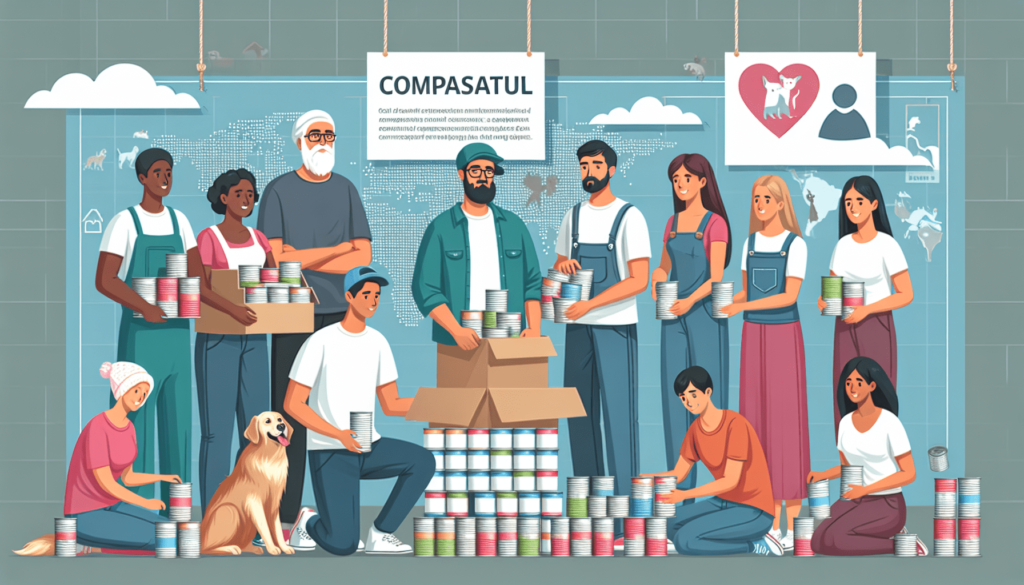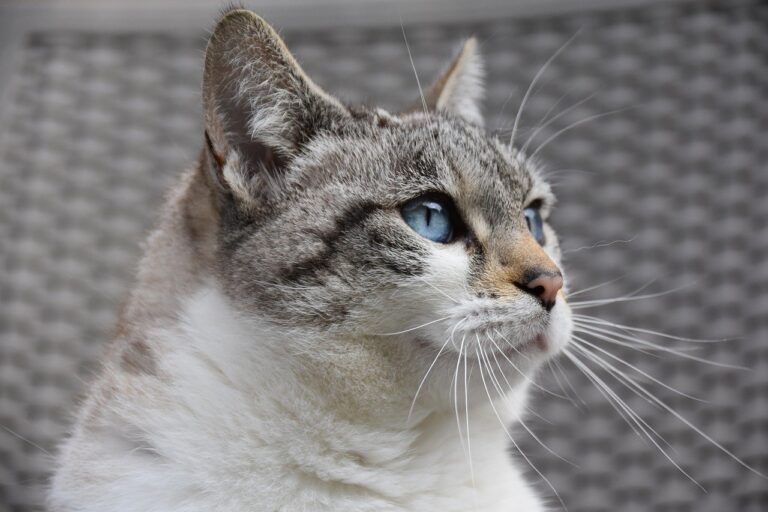Where To Donate Cat Food Near Me
If you find yourself with a surplus of cat food and a heart full of compassion, you might be wondering where you can make a difference for our feline friends in need. That’s where this article comes in handy. In a concise and friendly manner, we will guide you through the various options available for donating cat food near you. Whether you’re looking for a local shelter, a pet food bank, or a rescue organization, we’ve got you covered. So let’s embark on this journey together and spread some love to our furry companions.
Animal Shelters
Understanding the work of animal shelters
Animal shelters play a crucial role in providing care and shelter to homeless and abandoned animals. These organizations work tirelessly to ensure the well-being of the animals under their care. Animal shelters take in all types of animals, including cats, dogs, rabbits, and even exotic animals, and they strive to find them loving and forever homes. The dedicated staff at animal shelters provide veterinary care, food, shelter, and love to these animals until they can be adopted. Animal shelters also work towards educating the community about responsible pet ownership and the importance of spaying and neutering.
List of local animal shelters
If you’re looking to donate cat food near you, there are several local animal shelters that would greatly appreciate your help. Some well-known animal shelters include:
- [City Animal Shelter]
- [County Humane Society]
- [Rescue and Adoption Center]
- [Pet Haven]
- [Animal Rescue League]
These shelters are always in need of cat food donations to ensure that their feline residents are well-fed and cared for. By donating cat food to these shelters, you’re directly supporting their mission of providing a safe haven for homeless cats and helping them find their forever homes.
Donation procedure at animal shelters
If you’re considering donating cat food to an animal shelter, it’s important to know the donation procedure. Each shelter may have its own guidelines, but generally, you can drop off your donation at the shelter during their operating hours. Some shelters may have specific drop-off locations or designated donation bins.
When making a cat food donation, it’s helpful to consider donating dry cat food as it has a longer shelf life and is easier to store. However, many shelters also appreciate donations of wet cat food, especially for kittens or older cats with dental issues. Before donating, it’s always a good idea to contact the shelter to inquire about their specific needs and any restrictions they may have.
Remember, even a small donation can make a big difference in the lives of the cats and kittens in the animal shelter. Your generosity is greatly appreciated and can help provide nourishment and comfort to these animals while they await their forever homes.
Veterinary Clinics
Role of veterinary clinics in pet adoption
Veterinary clinics play a vital role in the adoption process of pets, including cats. Before adopting a cat, it’s important to ensure that they are in good health. Veterinary clinics are responsible for conducting health checks, spaying or neutering, and vaccinations for the cats in their care. These clinics provide necessary medical attention to ensure that the cats are healthy and ready for adoption.
Local veterinary clinics accepting donations
If you’re interested in donating cat food to support the efforts of veterinary clinics, there are several local clinics that accept donations. Reach out to your nearby veterinary clinics to find out if they accept cat food donations. Some clinics may have specific preferences or restrictions, so it’s always best to inquire about their needs before making a donation.
How to donate to veterinary clinics
When donating cat food to veterinary clinics, it’s important to follow their donation procedures. Contact the clinic in advance to inquire about their specific requirements and to arrange a suitable time for drop-off. Some clinics may have designated donation bins or specific drop-off locations, while others may prefer donations to be brought directly to the reception desk.
When selecting cat food to donate, it’s helpful to choose high-quality, nutritious options that cater to the dietary needs of cats. Veterinary clinics appreciate donations that align with their efforts to provide the best possible care for the animals in their facility.
Your donations to veterinary clinics contribute directly to the health and well-being of the cats in their care, ensuring they receive proper nutrition and support during their stay.

Rescue Groups
Basics about animal rescue groups
Animal rescue groups play a crucial role in saving the lives of animals in need. These organizations often focus on specific types of animals, such as cats or certain breeds, and work tirelessly to rescue, rehabilitate, and find loving homes for these animals. Rescue groups operate on a volunteer basis and rely on donations and support from the community to carry out their vital work.
Finding rescue groups in your area
If you’re passionate about supporting cat rescue efforts, there are several ways to find rescue groups in your area. A simple online search using keywords like “cat rescue group near me” or “local cat rescue organizations” can help you find rescue groups that specifically focus on feline welfare. Additionally, you can reach out to local animal shelters, veterinarian offices, or fellow pet enthusiasts who may have information on reputable rescue groups in your community.
Donating food to rescue groups
One of the most impactful ways to support rescue groups is by donating cat food. Cat food donations help alleviate the financial burden on these organizations, allowing them to redirect their resources towards other crucial areas, such as veterinary care and education.
Before making a donation, it’s recommended to contact the rescue group to inquire about their specific needs and preferences. Some rescue groups may have dietary restrictions or guidelines for the cat food they accept. By aligning your donation with their requirements, you can ensure that your contribution is utilized effectively.
When donating cat food to rescue groups, consider selecting a variety of options to accommodate different dietary needs and preferences. Additionally, check the expiration dates on the donated items to ensure that they are within the acceptable range for consumption.
Your donation to a rescue group can make a significant difference, directly impacting the lives of cats who are in need of a second chance at a happy and healthy life.
Pet Food Banks
Introduction to pet food banks
Pet food banks serve a critical role in helping pet owners who may be experiencing financial hardships provide nourishment for their beloved animals. These organizations collect and distribute pet food to families in need, ensuring that their pets can receive proper nutrition even during challenging times. Pet food banks often work in collaboration with local food banks and social services to reach those who require assistance.
Locating a pet food bank near you
If you’re interested in donating cat food to a pet food bank, it’s important to know where to find one in your area. A quick online search using keywords like “pet food bank near me” or “local pet food assistance programs” can provide information about pet food banks operating in your community. Additionally, reaching out to local animal shelters, veterinary clinics, or social services can provide valuable insights on pet food banks available nearby.
Donation process to pet food banks
When donating cat food to a pet food bank, it’s crucial to follow their donation process to ensure the efficient distribution of resources. Contact the pet food bank in advance to inquire about their specific procedures and any guidelines they may have regarding donations.
When selecting cat food to donate, focus on choosing high-quality, balanced options that meet the nutritional needs of cats. It’s also beneficial to opt for cat food with longer shelf lives, as this facilitates proper storage and distribution.
By donating cat food to a pet food bank, you’re directly assisting families and their beloved cats during challenging times. Your contribution can make a significant impact, ensuring that no pet goes hungry and that the human-animal bond remains strong.

Foster Care Homes
Understanding foster care for pets
Foster care homes provide temporary shelter and care for animals, including cats, outside of traditional animal shelters. These homes offer a more home-like environment, allowing the animals to experience love, attention, and socialization while they await adoption. Foster care plays a crucial role in the rehoming process as it helps assess the animal’s behavior, personality, and any specific needs they may have. Foster care providers work closely with rescue groups and animal shelters to help find the best possible forever homes for the animals in their care.
Local foster care homes accepting donations
If you’re interested in supporting foster care homes for cats, there may be local homes in your area that accept donations. Reach out to nearby foster care homes, animal shelters, or rescue groups to inquire about their donation needs and whether they accept cat food donations. Foster care homes often rely on community support to provide proper nutrition and care to the animals in their temporary custody.
Steps to donate to foster homes
When donating cat food to foster homes, it’s important to follow their specific donation process. Contact the foster care home in advance to inquire about their requirements and to arrange a suitable time for drop-off. Some foster care homes may have specific preferences or dietary restrictions, so it’s best to communicate directly with them.
When selecting cat food to donate, opt for options that are nutritionally balanced and suitable for the age and dietary needs of cats. It’s also helpful to consider selecting different varieties to provide choices for the cats in foster care.
Your donation to a foster care home can directly impact the well-being of the cats they care for, providing them with proper nourishment and increasing their chances of finding a loving forever home.
Community Centers
Community centers involved in pet care
Community centers often play a vital role in promoting pet care, responsible pet ownership, and providing resources for pet owners in the neighborhood. These centers act as a hub for various community initiatives and support programs, including pet food donation drives, low-cost vaccination clinics, and educational workshops. By actively engaging with community centers, individuals can access valuable information and connect with local pet care resources.
Donating pet food at community centers
If you’re looking to donate cat food, community centers can be a great place to contribute. Some community centers organize pet food drives to support pet owners who may require assistance in providing proper nutrition for their cats. These initiatives aim to ensure that pet owners can access the necessary resources to keep their pets happy and healthy.
When planning to donate cat food to a community center, it’s recommended to reach out to them in advance and inquire about their donation process. Some centers may have designated drop-off points or specific times set aside for donation collections.
List of community centers accepting cat food
While the availability of community centers accepting cat food donations may vary depending on your location, it’s worth exploring the following resources to find potential centers near you:
- [Youth and Community Center]
- [Neighborhood Recreation Center]
- [Senior Center]
- [Community Services Center]
- [Animal Welfare Center]
By donating cat food to community centers, you’re directly supporting the well-being of local cats and the pet owners who strive to provide them with the care they deserve.

Pet Stores
Popular pet stores with donation programs
Many pet stores recognize the importance of giving back to the community and actively engage in donation programs to support local animal shelters, rescue groups, and pet-related initiatives. By collaborating with pet stores, individuals can contribute to meaningful causes and make a difference in the lives of cats and other animals.
Some popular pet stores known for their donation programs include:
- [Pet Haven]
- [Paws and Tails]
- [Animal Express]
- [Pet Friends]
- [Furry Companions]
These pet stores often have designated donation bins or areas where individuals can drop off cat food donations. By participating in these donation programs, you can help support the efforts of these stores in making a positive impact on the lives of animals in need.
Guidelines for donating at pet stores
When donating cat food at pet stores, it’s essential to follow any guidelines or restrictions they may have in place. Some stores may only accept certain brands or types of cat food, while others may have specific requirements regarding packaging or expiration dates. To ensure the effectiveness of your donation, contact the pet store in advance to inquire about their preferences and any guidelines they have for donations.
Locating a pet store for donations near you
To find a pet store near you that accepts cat food donations, consider using online search engines or pet store locator websites. By entering keywords like “pet store donation programs near me” or “local pet stores accepting cat food donations,” you can find information about pet stores in your area that actively participate in donation programs. Additionally, reaching out to local animal shelters or rescue groups can provide insights into pet stores known for their charitable efforts.
By donating cat food at pet stores, you’re contributing to the health and well-being of cats, ensuring that they receive proper nourishment while they await adoption or contribute to the happiness of their forever homes.
Online Platforms
Using online platforms for pet food donation
In today’s digital age, online platforms have emerged as a convenient and effective way to contribute to pet food donations. These platforms connect donors with organizations and individuals in need, making it easier to support pet welfare causes regardless of geographical barriers.
Popular donation platforms online
Several popular online platforms facilitate pet food donations and connect donors with rescue groups, animal shelters, and pet food banks. These platforms include:
- [Pet Food Share]
- [Rescue Feeds]
- [Donate for Paws]
- [Pet Food Drive]
- [FeedPets Online]
By visiting these platforms, individuals can explore various donation opportunities and choose the cause or organization they resonate with the most. These platforms often provide clear instructions on how to donate cat food and ensure that the process is simple and secure.
Process of donating online
When donating cat food through online platforms, the process typically involves the following steps:
- Visit the chosen online platform and explore the available donation options.
- Select a pet welfare cause that aligns with your values and supports cats in need.
- Follow the instructions provided on the platform to make a donation, which may involve selecting a preferred cat food brand, quantity, and delivery address.
- Complete the donation process by providing the necessary information and confirming your contribution.
- Most platforms also offer the option to make monetary donations, which can be used to purchase cat food or support other aspects of animal welfare.
Donating cat food through online platforms provides a convenient way to support cats and other animals in need, regardless of your location. It allows individuals to contribute to pet welfare causes with ease and make a meaningful impact from the comfort of their own homes.

Local Events and Fundraisers
Understanding pet-related fundraising events
Pet-related fundraising events serve as an excellent opportunity to contribute to a worthy cause while enjoying a fun and engaging experience. These events often include activities such as pet walks, adoption fairs, charity auctions, and pet-themed celebrations. By participating in these events, individuals not only support local animal shelters, rescue groups, and pet-focused organizations, but also raise awareness about the importance of responsible pet ownership.
Finding local events accepting donations
To find local pet-related fundraising events that accept donations, consider the following methods:
- Check community calendars and local event listings for upcoming pet-related events.
- Follow animal shelters, rescue groups, and pet organizations on social media to stay updated about their events.
- Reach out to local animal shelters, veterinary clinics, or pet stores and inquire about any upcoming events or fundraisers.
- Connect with fellow pet enthusiasts and join online groups or forums dedicated to local pet-related events.
By actively participating in local events, individuals can not only donate cat food but also make direct connections within the animal welfare community and contribute to a positive impact for cats in need.
Donating to fundraisers
When attending pet-related fundraisers, donating cat food is often welcomed and appreciated. By bringing cat food donations to these events, you contribute directly to the cause while helping to address the immediate needs of cats in local shelters or foster care.
Before attending a fundraiser, it’s advisable to reach out to the event organizers or visit their website or social media pages to determine their specific donation requirements. Some fundraisers may have designated drop-off points or schedules for accepting donations.
Your contribution to pet-related fundraisers showcases your commitment to improving the lives of cats and supports the vital work of local organizations dedicated to their welfare.
Pet Foster Associations
Role of pet foster associations
Pet foster associations serve as crucial intermediaries between rescue groups, animal shelters, and potential foster families. These associations often act as a centralized entity, coordinating foster care placements and providing support, resources, and guidance to foster families. By partnering with rescue groups and shelters, pet foster associations ensure that animals, including cats, receive the care and attention they need in nurturing home environments while they await adoption.
Finding an association near you
To find a pet foster association near you, consider the following methods:
- Reach out to local animal shelters or rescue groups and inquire about any affiliated pet foster associations.
- Visit online directories or platforms dedicated to pet fostering and search for associations in your area.
- Connect with foster families or individuals involved in animal rescue and inquire about associations they may be familiar with.
The guidance and support provided by pet foster associations greatly contribute to the successful integration of cats into loving homes, making your contribution to these associations all the more impactful.
How to donate to pet foster associations
When donating cat food to pet foster associations, it’s crucial to follow their specific requirements and guidelines. Contact the association in advance to inquire about their donation process and any preferences they may have regarding cat food donations.
When selecting cat food to donate, consider options that cater to various dietary needs and preferences. High-quality cat food that focuses on providing balanced nutrition is particularly appreciated by pet foster associations.
By donating cat food to pet foster associations, you provide valuable support to foster families on their mission to care for cats in need, increasing their chances of finding their forever homes and providing them with a safe and loving environment.
In conclusion, there are numerous avenues through which you can donate cat food and contribute to the welfare of cats in need. Whether it’s supporting animal shelters, veterinary clinics, rescue groups, pet food banks, foster care homes, community centers, pet stores, online platforms, local events, or pet foster associations, your generosity and compassion can make a significant impact on the lives of these beloved animals. Remember, donating cat food is not only a way to provide nourishment but also a way to show that you care about their well-being. Together, we can make a meaningful difference and ensure that every cat has the opportunity for a happy and fulfilling life.








